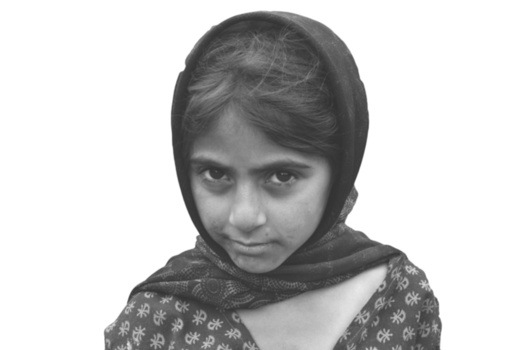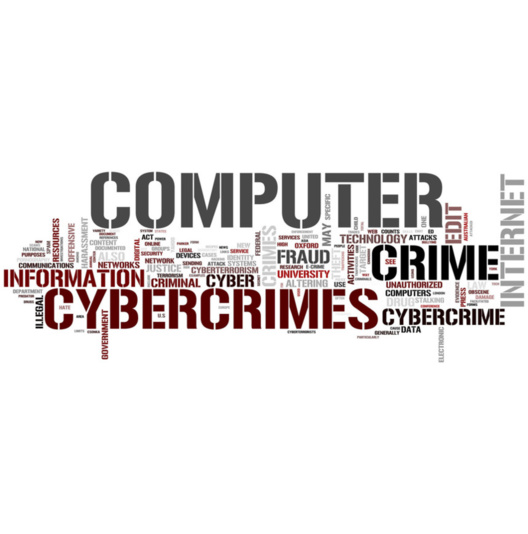By Christopher O. de Andrés

Roma girl, wordpress
(August 2010)
Recently over 8,000 Roma citizens have been expelled from France. Last Saturday 04.09.2010 crowds of demonstrators marched through the boulevards of eastern Paris to protest France’s Prime Minister Nicolas Sarkozy’s anti-crime measures. However, for some reason migrant children are not too often in the spotlight. Although they are one of the most vulnerable groups of European society –if not the most-; many have suffered various ways of violence, run away from poverty; become victims of trafficking, have apparently sunk into obscurity. As Council of Europe’s Commissioner for Human Rights, Thomas Hammarberg, points out “many live on the streets, disappear from the centres where they are accommodated, are kidnapped and exploited, fall into the hands of traffickers and are denied basic health care and education”.
We must keep in mind that, yes indeed, migrant children are first and foremost CHILDREN. Therefore, human beings. They deserve the same rights as others. The role of Council of Europe’s Framework Convention for the Protection of National Minorities and with the European Social Charter is to ensure free movement, non-discrimination, access to health, housing education, regardless of national identity. However, children who come along with their parents are individual and not mere belongings of their parents.
Recently over 8,000 Roma citizens have been expelled from France. Last Saturday 04.09.2010 crowds of demonstrators marched through the boulevards of eastern Paris to protest France’s Prime Minister Nicolas Sarkozy’s anti-crime measures. However, for some reason migrant children are not too often in the spotlight. Although they are one of the most vulnerable groups of European society –if not the most-; many have suffered various ways of violence, run away from poverty; become victims of trafficking, have apparently sunk into obscurity. As Council of Europe’s Commissioner for Human Rights, Thomas Hammarberg, points out “many live on the streets, disappear from the centres where they are accommodated, are kidnapped and exploited, fall into the hands of traffickers and are denied basic health care and education”.
We must keep in mind that, yes indeed, migrant children are first and foremost CHILDREN. Therefore, human beings. They deserve the same rights as others. The role of Council of Europe’s Framework Convention for the Protection of National Minorities and with the European Social Charter is to ensure free movement, non-discrimination, access to health, housing education, regardless of national identity. However, children who come along with their parents are individual and not mere belongings of their parents.
In order for these children in irregular situations to have a true chance to seek asylum, States should act within ‘the principle of the best interest of the child’ and have an INDIVIDUALISED AND RIGHTS-BASED APPROACH. Therein, it is fundamental to guarantee children access to compulsory and quality education, extra teaching of majority language combined with intercultural approach to education. “School attendance should never be used as a tool to identify and arrest irregular migrants” warns explicitly the Commissioner. The right to health for migrant children is also a priority right.
In this context, I would like to stress the relevance of equality in diversity. Dialogue between cultures aids social cohesion and is a priority for Council of Europe. Key recommendation to States to establish and implement “life projects” for all unaccompanied migrants minors, intent to fully strengthen the necessary skills to become an active, responsible and accountable member in society. Instead of being detained, States should provide competent custodians, appropriate accommodation to enhance their protection and, first of all, recognise the vulnerability of the child. These life projects will nurture future open and respectful exchanges of views between people from different ethnic groups, cultural, religious and linguistic backgrounds. These “life projects” will ensure local and national communities to resist intolerance, xenophobia, and discrimination.
Tracing the routes of Europe and our European culture are many colourful thematic itineraries retracing the history of the influence and exchange that have shaped European culture creating the cultural, social and spiritual diversity and richness of our continent. The way I see it, only if we allow migrant children voice their opinions -being treated individually- diversity will thrive, and 21st Century progress will flourish. Concerning the Commissioner’s key recommendations, I would lastly highlight “Family reunification” as a valuable right any child must enjoy, even if his/her parents do not have permanent resident status or are asylum seekers, within legal framework “in compliance of the best interest of the child”. And beyond this, there is a human angle in this legal analysis which to my understanding weights more than the law: human rights. Children simply have the right to life with their relatives and the right to family reunification applies to all children.
In 2010 we mark 60 years of the European Convention of Human Rights. It is time to plant new seeds of growth. Much has been said about Protocol 12 to the European Convention of HR, prohibiting all forms of discrimination. This covers social rights and allows citizens to complain before the ECtHR. At the time every country ratifies this protocol, it will be a catalyst towards acknowledging a true respect for multiculturalism and genuine/free movement of residents between members states. Children are the fresh blood which will nourish our upcoming social cycle. It will be a challenge which can only be pursued by the means of intercultural dialogue.
In this context, I would like to stress the relevance of equality in diversity. Dialogue between cultures aids social cohesion and is a priority for Council of Europe. Key recommendation to States to establish and implement “life projects” for all unaccompanied migrants minors, intent to fully strengthen the necessary skills to become an active, responsible and accountable member in society. Instead of being detained, States should provide competent custodians, appropriate accommodation to enhance their protection and, first of all, recognise the vulnerability of the child. These life projects will nurture future open and respectful exchanges of views between people from different ethnic groups, cultural, religious and linguistic backgrounds. These “life projects” will ensure local and national communities to resist intolerance, xenophobia, and discrimination.
Tracing the routes of Europe and our European culture are many colourful thematic itineraries retracing the history of the influence and exchange that have shaped European culture creating the cultural, social and spiritual diversity and richness of our continent. The way I see it, only if we allow migrant children voice their opinions -being treated individually- diversity will thrive, and 21st Century progress will flourish. Concerning the Commissioner’s key recommendations, I would lastly highlight “Family reunification” as a valuable right any child must enjoy, even if his/her parents do not have permanent resident status or are asylum seekers, within legal framework “in compliance of the best interest of the child”. And beyond this, there is a human angle in this legal analysis which to my understanding weights more than the law: human rights. Children simply have the right to life with their relatives and the right to family reunification applies to all children.
In 2010 we mark 60 years of the European Convention of Human Rights. It is time to plant new seeds of growth. Much has been said about Protocol 12 to the European Convention of HR, prohibiting all forms of discrimination. This covers social rights and allows citizens to complain before the ECtHR. At the time every country ratifies this protocol, it will be a catalyst towards acknowledging a true respect for multiculturalism and genuine/free movement of residents between members states. Children are the fresh blood which will nourish our upcoming social cycle. It will be a challenge which can only be pursued by the means of intercultural dialogue.
Tags :
Family reunification
Nicolas Sarkozy
Roma children
the European Social Charter
Thomas Hammarberg
victims of trafficking
Posted by Christopher Oscar de Andrés, on Sunday, April 3rd 2011 at 08:45
|
Comments (0)
By Christopher O. de Andrés

(September 2010)
The Council of Europe will be engaging in the 5th Internet Governance Forum (IGF) on 14-17 September in Vilnius (Lithuania). This will be an open dialogue with governments, civil society representatives and the private sector on how to safeguard freedom on the Internet.
Contributing to the overall theme “ Developing the future together” of the UN event, the CoE will provide an advance legal framework for the internet. To my understanding the implementation of the Budapest Cybercrime Convention will be one of the cross-cutting issues of this Forum.
What is the real purpose of this effort? With over 1.6 billion users worldwide, internet has become a space where individuals, including children and adolescents can express themselves freely, create, engage in dialogue and prompt action to resolve problems within the new social forums.
Access to the Internet is no longer a luxury but a necessity and nowadays is increasingly considered a basic right. For the younger generation it has become their primary source of freedom and information in their process of growing up. Our aim is to seek the legitimate expectation that Internet services should be and will remain accessible, affordable, secure, reliable and available to all.
The Internet belongs to all of us, and should serve the common good. This year marks the 60th anniversary of the European Convention of Human Rights. Article 10 of the European Convention on HR says that everyone should have the right to freedom of expression and information. However, where is the limit?: this means that state authorities should ensure there is freedom to communicate on the Internet subject to the limits which applies to the other forms of expression under the Convention.
While the cyberspace is a global forum where we are able to exercise our fundamental freedoms, the use of information technologies also implies some risks. And the more society relies on the Internet technology, the more vulnerable becomes to threats such as cybercrime, children’s sexual exploitation/sexual abuse, free flow of racism and hate speech messages, etc.
The Council of Europe will be engaging in the 5th Internet Governance Forum (IGF) on 14-17 September in Vilnius (Lithuania). This will be an open dialogue with governments, civil society representatives and the private sector on how to safeguard freedom on the Internet.
Contributing to the overall theme “ Developing the future together” of the UN event, the CoE will provide an advance legal framework for the internet. To my understanding the implementation of the Budapest Cybercrime Convention will be one of the cross-cutting issues of this Forum.
What is the real purpose of this effort? With over 1.6 billion users worldwide, internet has become a space where individuals, including children and adolescents can express themselves freely, create, engage in dialogue and prompt action to resolve problems within the new social forums.
Access to the Internet is no longer a luxury but a necessity and nowadays is increasingly considered a basic right. For the younger generation it has become their primary source of freedom and information in their process of growing up. Our aim is to seek the legitimate expectation that Internet services should be and will remain accessible, affordable, secure, reliable and available to all.
The Internet belongs to all of us, and should serve the common good. This year marks the 60th anniversary of the European Convention of Human Rights. Article 10 of the European Convention on HR says that everyone should have the right to freedom of expression and information. However, where is the limit?: this means that state authorities should ensure there is freedom to communicate on the Internet subject to the limits which applies to the other forms of expression under the Convention.
While the cyberspace is a global forum where we are able to exercise our fundamental freedoms, the use of information technologies also implies some risks. And the more society relies on the Internet technology, the more vulnerable becomes to threats such as cybercrime, children’s sexual exploitation/sexual abuse, free flow of racism and hate speech messages, etc.
It is being said the Internet is one of the greatest liberating forces of the 21st Century, making information and global information accessible to everyone on the WorldWideWeb. Nevertheless, the free flow of information may have several adverse effects to the stability and security and privacy of the Internet and, to this same extend, to our fundamental rights. Once we explore the cyberspace by entering into its highway we leave many traces unwittingly of personal data which will be stored on grey-abstract computer systems without knowing what will really happen to that data.
I should use this editorial to emphasise that security and freedom of expression are not mutually exclusively concepts. Much on the opposite, both need to counter-balance each other: a genuine security needs freedom of expression and vice- versa. There seems to be a growing consensus in this respect. However, this is a shared responsibility. In the globalised online environment, we all need to contribute to a rights-based and safer cyberspace. And I strongly believe we have the best chance to succeed if we pool resources and political will to push forward an effective existing tool – namely the Council of Europe Cybercrime Convention. Cybercriminals, abuses by state and non-state actors flow across the fast-moving online spectrum. It is a non-stop threat which eventually will feature new challenges. Simultaneously, individual’s privacy and security must be safeguarded when going online.
The only way to tackle fraud and violations perpetrated against human rights will be by prompting a vigorous response from state governments, the private sector, supranational and national organizations and developing as quickly as possible multilateral joint projects in pursuit of common goals with ongoing Internet actors – e.g. European Internet Service Providers (ISPs), the Internet Corporation for Assigned Names and Numbers (ICANN). By active coherent partnership will ensure effective responsibility, freedom and protection of our democratic rights. First and foremost, quoting the Council of Europe Secretary General, Thorbjorn Jagland, “we must not forget, the Internet is being built by the people for the people and with the people”.
I should use this editorial to emphasise that security and freedom of expression are not mutually exclusively concepts. Much on the opposite, both need to counter-balance each other: a genuine security needs freedom of expression and vice- versa. There seems to be a growing consensus in this respect. However, this is a shared responsibility. In the globalised online environment, we all need to contribute to a rights-based and safer cyberspace. And I strongly believe we have the best chance to succeed if we pool resources and political will to push forward an effective existing tool – namely the Council of Europe Cybercrime Convention. Cybercriminals, abuses by state and non-state actors flow across the fast-moving online spectrum. It is a non-stop threat which eventually will feature new challenges. Simultaneously, individual’s privacy and security must be safeguarded when going online.
The only way to tackle fraud and violations perpetrated against human rights will be by prompting a vigorous response from state governments, the private sector, supranational and national organizations and developing as quickly as possible multilateral joint projects in pursuit of common goals with ongoing Internet actors – e.g. European Internet Service Providers (ISPs), the Internet Corporation for Assigned Names and Numbers (ICANN). By active coherent partnership will ensure effective responsibility, freedom and protection of our democratic rights. First and foremost, quoting the Council of Europe Secretary General, Thorbjorn Jagland, “we must not forget, the Internet is being built by the people for the people and with the people”.

Category
Recent posts
Archives
#Team Management #Gestión de Equipo International Business Development #Gestión de Equipo Comercial
5 MISSION AREAS IN HORIZON EUROPE
Acceso universal al tratamiento del sida
ACNUR
actor Pepe Sancho
ADHESIÓN DE CROACIA A LA UE
advertising / teleshopping spots
Africa
Alianza Atlántica
Alianza del Pacífico
Alibaba
Alibaba Group Holding Ltd.
AlipayApp
Amnistía Internacional
Ana Pastor
AnálisisyGestiónInteligenteDeDatos
Angela Merkel
Banco Central Europeo (BCE)
Banco Mundial
Barack Obama
batalla del sector del taxi y VTC
Benjamin Franklin
Bill Gates
binomio chavismo / antichavismo
Blockchain opportunities in international public health care sector
Blockchain technologies in health care
Blog Posts
Boris Johnson
Brexit
BUILDING THE CITIES OF THE FUTURE
China
Comisión Europea
Coronavirus
Covid-19
COVID-19
Cybercrime
David Cameron
Editorial Universitas SA
EU Convention of Human Rights
European Commission
FMI
Henrique Capriles
Human Rights
ICAA
International Business Development
Jack Ma
Jean-Claude Juncker
Mariano Rajoy
Obama
ONU
OSCE
The Council of Europe
Thomas Hammarberg
UNED
UNHCR
Unión Europea
Vladímir Putin






